History has not seen a cricketing rivalry as fierce as this this century, every ball bowled every run taken, coming with no quarter given.
Ahead of India's five Test tour of Australia, beginning in Perth on November 22, Norma Astrid Godinho/Rediff.com takes a walk down memory lane, recounting India's sojourns Down Under from 1947 to 2021, in a 4-part series.

1947-1948: Five Test series (Australia 4-0)
1st Test, Brisbane
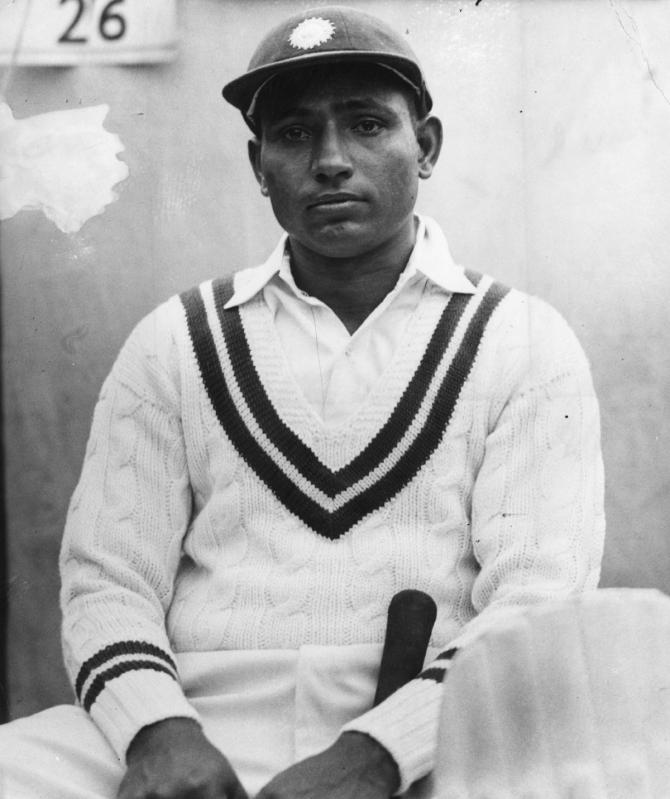
India have savoured all sorts of emotions and experiences when Down Under, the highs of joy, the lows of sorrow, the agony of frustration, sledging and controversies and it was this historic tour that started it all.
Captained by Lala Amarnath, India toured Australia just after Independence in 1947. It was termed as one of the friendliest series ever played on Australian soil with the visitors praising Sir Don Bradman for being a thoughtful host.
The Indian team had a demanding flight schedule from Calcutta to Perth. It took all of three-and-a-half days for the Indians to reach their destination with stops in Burma, Malaysia, Singapore, two layovers in Indonesia and four in Australia before arriving in Perth and then onto Brisbane.
Back in the day, Test matches were a 6-day affair with a rest day in between and one over in Australia consisted of 8 deliveries.
DID YOU KNOW? Even before the Test series had begun, The Don had made a point and history.
In the 5th tour match between India and the Australian XI, Bradman took a single off part-time leggie Gogumal Kishenchand (a batter of repute in first class cricket) to reach his 100th first class hundred.
The first Test commenced on November 28 and ended on December 4 at the Brisbane Cricket Ground, Woolloongabba, now known as The Gabba.
It was baptism by fire for the Indians. Australia, led by the GOAT -- Don Bradman -- thrashed India by an innings and 226 runs, their second biggest victory by an innings at that time (their biggest victory by innings came against England a year prior -- a win by an innings and 332 runs).
The first Test saw debutants Hemu Adhikari, Gogumal Kishenchand Harisinghani, Khanderao Rangnekar and Jamshed Jenni Irani. Of the four, Adhikari was the only one who went on to play a comparatively sizeable amount of Tests -- but because of his service in the army he ended playing just 21 Tests, captaining India only once in his career.
After Bradman scored a stoic 185 that helped the Aussies pile on 382 for 8 in the first innings, the Indian batters could not withstand the bowling of left-arm pacer Ernie Toshac who had 11 scalps to his name, India were skittled out for 58 and 98 in both essays.
Captain Amarnath with four wickets and Vinoo Mankad with three were the only stand out performers for India.
2nd Test, Sydney
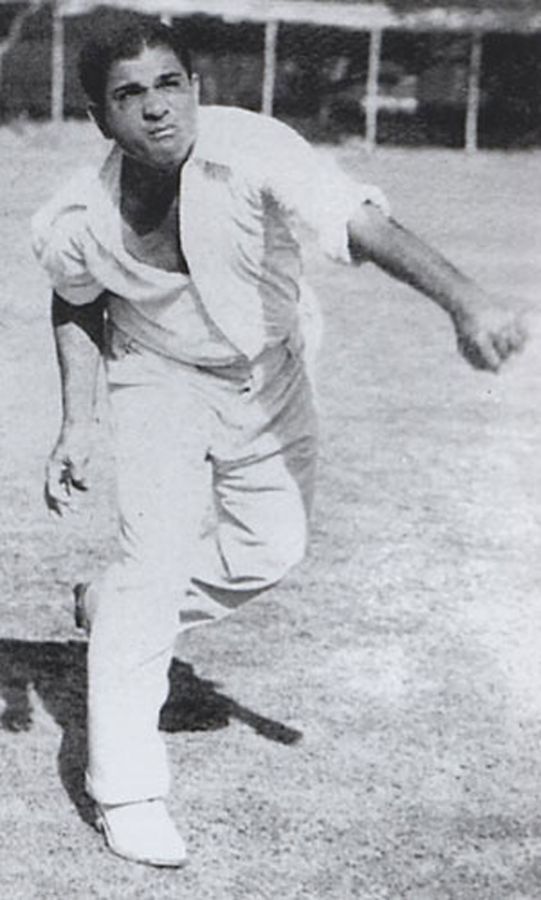
The second Test at the SCG saw all-rounder Dattu Phadkar and leggie Amir Elahi make their debuts.
It was in this Test that Vinoo Mankad's name became synonymous with the notorious form of run-out known as 'Mankading'.
Mankad ran out Australian opener Bill Brown for 18, as he had backed up too far at the non-striker's end.
Having opted to bat after winning the toss, India put on a better show, putting 188 on the board in the first innings thanks to Phadkar's half-century on debut (51 off 97).
Phadkar received fine support from Gogumal Kishenchand who scored 44. Bill Johnston and Keith Miller shared 7 wickets to dismiss India.
After scoring a fighting fifty, Phadkar delivered with the ball taking three wickets while Vijay Hazare took 4 wickets as Australia crumbled for 107.
In their second essay India were 61 for 1 but rain played spoilsport.
On what was a rain-marred Test, 3 of the 6 days were washed out and the match ended in a draw.
3rd Test, Melbourne

In the third Test at the Melbourne Cricket Ground, Bradman scored another century, hitting 132, with Aussies piling on 394 runs in the first innings. Amarnath and Mankad were the pick of the bowlers for India with four-wicket hauls.
Mankad carried the momentum into batting, hitting 116, a first Test century by an Indian against Australia. Phadkar's impressive series continued, hitting a second fifty, this time grafting a 55 off 124 balls.
On day 3, India lost three quick wickets before Amarnath declared even though India were 103 runs behind.
With a 103 run deficit, the Indian bowlers put the pressure on the Aussies from the get go and the hosts were reduced to 32 for 4 before Arthur Morris (100) and Donald Bradman (127) launched a brilliant fightback and Australia declared at 255 for 4.
A rest day later, India were knocked over for 125 with Gul Mohammad top-scoring with 28 and Australia taking a 2-0 lead in the series.
4th Test, Adelaide

The fourth Test saw the Test debut of future Aussie great Neil Harvey.
Australia won the toss and elected to bat. They batted aggressively with opener Sid Barnes (112) and double centurion Bradman (201 off 296) hitting the ball for a flurry of boundaries.
Lindsay Hassett then put on a partnership with Bradman, while missing out on a double ton by two runs. He then partnered Keith Miller who scored a half ton (67). Australia were finally dismissed for a mammoth 674.
In reply, Mankad and Amarnath scored 49 and 46 respectively before Vijay Hazare and the in form Phadkar hit tons. India were then dismissed for 381. Ian Johnson stood out for the hosts with a four wicket haul.
India were asked to follow on and apart from Hazare who hit a stoic 145, there was no other contribution worth the mention -- the next best score being 51 by Hemu Adhikari. Ray Lindwall's seven wicket haul saw India crash out for 277 and Australia won the match by an innings and 16 runs.
5th Test Melbourne

The Invicibles continued to torment the Indians and once again, after winning the toss, opted to bat.
Bradman retired hurt with a torn rib muscle after scoring 57. There were big contributions from Harvey who scored his maiden Test century and Bill Brown (99) at the top of the order before Australia declared at 575 for 8.
In reply, India got off to a horrid start before Mankad and Adhikari put on a 124-run stand for the second wicket. Mankad went on to score a century with Hazare playing an able ally. Phadkar's purple patch continued and he scored a patient 56. There were no more contributions of mention as India folded for 331.
Trailing by 244 runs India followed on, but Amarnath's India folded like a pack of cards to 67 all out with Adhikari's 17 the highest scorer for India. Doug Ring and Len Johnson picked 6 wickets among them to give Australia a 4-0 series win and end India's disastrous tour.
While Hazare finished behind Bradman as the second highest run-getter with 429 runs from the 5 Tests, it was debutant Phadkar who left a mark on the series. The all-rounder topped the batting averages signing off with 314 runs in 4 Tests scoring a 50 in every match. Phadkar went on to play 31 Tests for India, scoring 1,229 runs and taking 62 wickets.
1967-1968: Four Test series (Australia 4-0)
1st Test, Adelaide

It took 20 years for an India team to return Down Under. This was a new India, under the stylish Mansur Ali Khan 'Tiger' Pataudi, who instilled in his team a burning desire and a will to win.
As was the design of his team, he had three spinners in the squad that travelled to Australia, the spinners of the stature of Bishan Singh Bedi, Erapalli Prasanna and the magician Bhagwat Chandrashekhar.
Syed Abid Ali and Umesh Kulkarni received maiden Test call-ups. M L Jaisimha, a stylish batter and an effective all-rounder, was not in the original squad, but was added to the side as a replacement for an injured Chandrashekhar ahead of the 3rd Test.
The stern looking Abid Ali was known to be a team man through and through, his fielding abilities were top-notch and history suggests he even opened the Indian batting in Australia in this series when many others were unwilling.
Prasanna took most of his wickets on the 1967/1968 tour against a strong Australian side.
Captain Pataudi was sidelined from the first Test with a hamstring injury and Chandu Borde stepped in for him.
The first Test commenced on December 23, 1967 with Australia winning the toss and electing to bat. Australia scored 311 for 6 at close of play on Day 1 with the top four batters (Captain Bob Simpson, Bill Lawry, Paul Sheahan and Bob Cowper) getting half centuries.

The next day, December 24, being a Sunday, was a rest day. The next day it wasn't the most pleasant Christmas Day for the Aussies as Abid Ali (6 for 55) cleaned up the Aussies, who put on just 24 runs, losing 4 quick wickets on Day 2.
Interestingly, it is one of only two instances when Test cricket was played on Christmas Day in Adelaide, the other Test being when the West Indies beat Australia in 1951.
Opener Farokh Engineer helped India launch a strong reply scoring 89. Borde (69) and Rusi Surti were among the team's top scorers before the visitors were bowled out for 307 on Day 3.
With just a 28 run lead, Australia came all guns blazing with Simpson (103) and Cowper (108) helping the team put on 369 on the board. Surti had a five-wicket haul (5 for 74).
Chasing 398 for victory, India perished easily, a semblance of a fight coming only from Surti (55) and Venkatraman Subramanya (75) before the tourists were bowled out for 251. India's series commenced on a losing note, going down by 146 runs.
2nd Test, Melbourne

Although half-fit, Pataudi returned to lead India in the second Test. After winning the toss, he opted to bowl on a green top at the MCG, a decision that backfired. He literally batted on one leg, top scoring with 75 in the first innings, India was bundled out for 173 and pacer Graham McKenzie the wrecker-in-chief with figures of 7 for 66.
Pataudi fought a lone battle as he took India from 47 for 6 to 162 before being dismissed.
Australia had three centurions in their first essay with Simpson scoring 109, Bill Lawry hitting a 100 and Ian Chappell scoring 151 in quick time in the middle order. The hosts racked up a massive 529 runs, a lead of 356 runs.
Still hamstrung, Pataudi coming down the order at number 7 scored a fighting 85 after Ajit Wadekar (99), Engineer (42) and Surti (43) tried to score at a fast pace but the visitors were eventually all out for 352 and lost the second match by an innings and 4 runs.
Pataudi was hailed for his twin half tons in the Test, most of the runs coming off backfoot shots. Some cricket lovers stated them as thus: 'Innings played with one eye and one leg', Tiger having his right accident in a car accident in England in 1961.
3rd Test, Brisbane
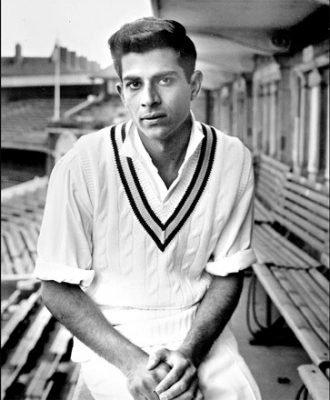
The third Test in Brisbane saw a much-improved Indian team. A sudden injury to leggie B S Chandrashekhar saw M L Jaisimha being rushed to Australia and he took the field just hours after touch down, jet lag no worries.
Jaisimha had not played top-flight cricket for nearly two years -- he is said to have borrowed a bat from a friend and practiced batting in the nets for a few hours before boarding the flight to Brisbane.
Surprisingly, there was no trace of lack of match practice as he made himself count, scoring 74 and 101 in a thrilling match that India nearly pulled off victory.
India had won the toss and opted to field. The Aussies dealt the Indian pacers with ease and although they did face some problem against the spin of Bedi, Prasanna, Surti and Bapu Nadkarni, the hosts piled on 379 runs in the first innings.
India, in reply, fell 100 runs short even after half tons by Surti, Pataudi and Jaisimha. Jaisimha scored with consumate ease, playing the ball through the gaps while easily picking up the boundaries.
Prasanna's guile left Australia in tatters in the second innings. The hosts were going strong at 240 for 4, but once Prasanna took out a well set Ian Chappell, Australia wilted.
Prasanna (6 for 104) wiped out the tail and Australia were dismssed for 294 in their 2nd essay.
India needed 394 for victory and Abid Ali (47), Rusi Surti (64), Pataudi (48) and Jaisimha (top scoring with 101) battled hard and long and nearly took the team over the line, falling short by just 39 runs.
That was the last time Jaisimha, now a forgotten figure in Indian cricket, would go past a half-century.
4th Test, Sydney
India won the toss and elected to field.
Australia made a strong start with opener Bill Lawry hitting 66 and one down Paul Sheahan hitting 72 after Abid Ali took out Bob Cowper.
Prasanna and Bedi then struck two blows each as the hosts were reduced to 245 for 6 at close on Day 1.
Umesh Kulkarni and Prasanna then dealt early blows on Day 2 and the Aussies were all out for 317. Prasanna was the pick of the bowlers with 3 for 62.
In India's first innings, Abid Ali top-scored with 79. There were considerable contributions from Pataudi (51) and Ajit Wadekar (49) and India were 196 for 6 at close of play on Day 2.
India got off to horrid start on Day 3 losing four wickets while adding 72 runs before being bundled out for 268.
Eric Freeman (4 for 86) and Bob Simpson (3 for 38) were the pick of the bowlers for Australia.
With a 49-run lead, Australian openers Lawry and Cowper consolidated with a 111-run stand for the first wicket before the former was dismissed by Nadkarni for 52.
Simpson and Cowper then stitched up 65 runs before the latter got to his century. But Simpson was run out, after which Cowper put on a 46-run stand with Sheahan. Thereafter there were no partnerships worthy of mention as Prasanna, with a four wicket haul had the Aussies in a mess with Cowper's sole resistance (165).
Australia were all out for 292 and India were left to chase 341 for victory.
Engineer (37) and Abid Ali (81) gave India a good start putting on an 83 run stand. That was the best India could muster as the others crumbled. Off spinner Cowper took four wickets and Australia won by 144 runs to claim the series 4-0.
1977-1978: Five Test series (Australia 3-2 India)
1st Test, Brisbane
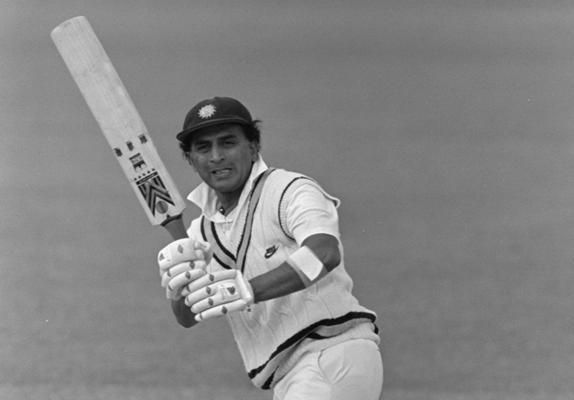
India returned to Australia after a decade, this time under astute captain Bishan Singh Bedi.
But it was the Aussies who were the beleaguered side having lost the Chappell brothers (Ian and Greg) as well as their bowling powerhouse Dennis Lillee among other big names to World Series Cricket tournament by Kerry Packer.
This exodus forced Bob Simpson out of retirement to lead the side against an Indian team that was a mix of youth and experience. It was the first tour Down Under for Sunil Gavaskar, Dilip Vengsarkar, Mohinder Amarnath and Gundappa Viswanath while Prasanna and Bishan Bedi were part of India's touring party a decade earlier.
Highest margin of victory by India in Australia by runs: India won by 222 runs at Melbourne in December 1977.
In the opening Test in Brisbane, Australia opted to bat first but Bedi (5 for 55) spun a web around the Aussies and bundled them out for 166, Peter Toohey the top scorer with 82.
India were dismal in reply, being shot out for 153 with Vengsarkar (48) and Vishwanath (45) the only ones with a fighting performance. Wayne Clark was the wrecker-in-chief with 4 for 36.
With a 13-run lead, Australia came back strongly -- Simpson scoring 89 and Toohey scoring his second half ton of the match (51). Australia's tail frustrated the visitors with Jeff Thomson (41) and Alan Hurst putting on a 50 run last wicket stand as the hosts piled on 327. Madan Lal finished with five wickets for 72.
Chasing 340 to win, India lost Vengsarkar early. But Amarnath and Gavaskar put on an 81-run stand before the former was dismissed three short of his half-century.
Gavaskar and Vishwanath then stitched up a 59-run stand before three quick wickets fell.
Coming in at No 8 Kirmani joined forces with Gavaskar, who then scored his first century Down Under (113), with a 47 run stand.
After Gavaskar was sent back, Bedi gave Kirmani a semblance of a partnership before the latter was out for 55. With that wicket, India's hopes were killed and Chandrashekhar was the last to go with Bishan the last man standing and India tasting a close 16 run loss. It was a heart-breaking result for an Indian side so close to making history.
2nd Test, Perth
India lost the first Test narrowly but went into the second one with confidence.
The visitors piled on 402 runs thanks mainly to Amarnath's 90, Chetan Chauhan's 88 and Vengsarkar's 49.
Jeff Thomson was again among the wickets with 4 for 101.
Simpson played a captain's knock with a stoic century to lead his team out of the woods. Contributions from opener John Dyson (53) and Steve Rixon (50) saw Australia just 8 runs short.
India needed more than a few contributions with the bat if they had to put a big total on the board.
But save Gavaskar, who scored his second century (127) of the series, and Amarnath's ton, there was no contribution to speak of from other Indian batters and they declared at 330 for 9.
Needing 339 for victory, Australia stuttered early in the chase but Tony Mann (105) and David Ogilvie (47) put on a 139-run stand to bring the Aussie train back on track.
The duo got out in quick succession but Toohey and Simpson put on a 100-run partnership. After the pair were dismissed it was Steve Rixon who took the team over the line with a two-wicket win after Bedi picked another fifer to give the hosts a scare.
3rd Test, Melbourne
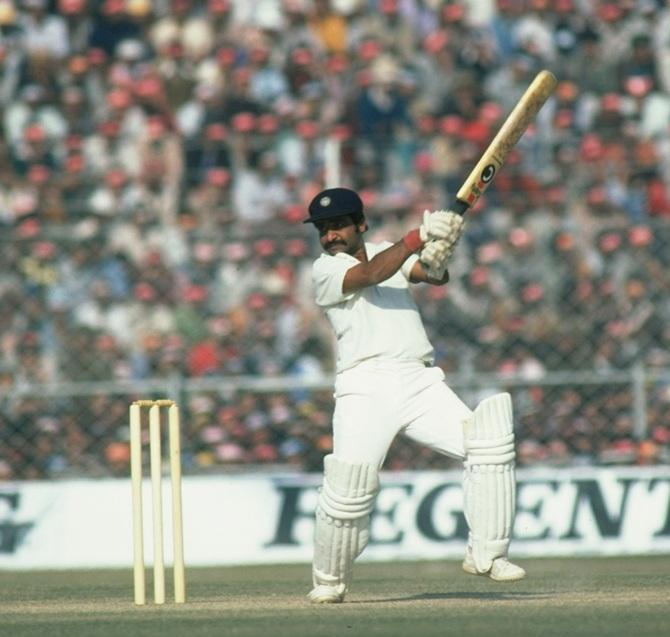
With their backs against the wall, India had to produce some spectacular cricket in Melbourne and they did so with aplomb.
In the first innings, India put 256 on the board thanks to Amarnath's gritty 72, Viwanath's 59 and some middle order contributions.
Australia lost two early wickets before Gary Cosier and Craig Serjeant scored 67 and 85 respectively, Chandrashekhar (6 for 52) then dismissed the Aussies for 213.
With a precious 43 run lead, Indian openers enjoyed a rare mental advantage and Gavaskar scored 118 at the top of the order.
Viswanath scored a quick 54 before Ashok Mankad (38) and Amarnath (41) helped swell India's lead.
With 386 to win, Chandrashekhar (6 for 52) and Bedi (4 for 58) combined to wreck the Aussie batting as they crumbled for 164.
India thus won their first ever Test match in Australia, beating the hosts by a mammoth 222 runs.
4th Test, Sydney

India came to Sydney with their tails up and with three spinners in their ranks on a track that historically assists tweakers, the visitors were bound to give the hosts a hard time.
Australia won the toss and elected to bat but the move proved costly as Chandrashekhar (4 for 30) and Bedi (3 for 49) ripped through their batting line-up as they dismissed Australia for 131, Simpson the top-scorer with 38.
The Indian batters complimented the bowlers with Gavaskar and Chauhan giving India a solid start before Viswanath hit a patient 79. Vengsarkar (48) and Kirmani (42) batted doggedly, then Karsan Ghavri hit a 64 batting at number 9, as India scored a massive 396 declared.
With a massive 265 run lead, India's bowlers were psychologically on top of the Aussies. Gary Cowper (68) and Peter Toohey (85) were the only two who put on a fight while the rest fell like 9 pins. Prasanna had the Aussies in a web as he took a four-for, with Bedi and Chadrashekhar giving him ample support.
India won by an innings and 2 runs.
5th Test, Adelaide
The momentum was with India as they travelled to Adelaide for the 5th Test but the Aussies were adamant to not let India serve them a series loss at home.
Australia batted first and posted 505, the highest total of the series after Graham Yallop scored 121 at No 3 while Simpson (100) scored his second ton of the series.
Opener Rick Darling scored a half ton on debut while Toohey hit another half ton. Chandrashekhar got a five-wicket haul before the Aussies were dismissed.
In reply, India were dismissed for 269 with Vishwanath hitting a stoic 89.
With a sizeable 236 run lead, Australia were dismissed for 256 in their second essay with Darling and Simpson scoring 50s. Ghavri and Bedi took four wickets a piece with India needing a massive 492 for victory.
Chasing the impossible target, India were dismissed for 445 just 47 runs short, with contributions from nearly every batter as Amarnath (86), Viswanath (73), Vengsarkar (78) and Kirmani (51) scored valuable half-tons.
India lost the series but not before giving the home team, albeit a depleted side, a mighty scare.19
1980-81: Three Test series (Australia 1-1 India)
1st Test, Sydney

By this time the World Cricket Series ceased to exist and Australia were once again a force to reckon with with their best players coming back into the national fold.
It was the beginning of the decade that saw the rise of the West Indies as the powerhouse of pace bowling but India's fast bowling reserves were strengthened by the emergence of one Kapil Dev.
Gavaskar was now the captain of the Indian team and he had in his ranks Vengsakar, Chauhan, Vishwanath, Kirmani and Ghavri who had the experience of playing on Australian soil.
The opening Test was played in Sydney and India elected to bat first. Gavaskar was dismissed early for a five-ball duck.
Sandeep Patil, who scored a blazing 65 off 78 balls, got hit by Rodney Hogg on the body and then by Len Pascoe on the head, but he soldiered on.
Pascoe and Lillee shared eight wickets between them as the tourists were dismissed for 201 in their first innings.
In reply, Greg Chappell hit a superb double ton (204) with Doug Walters the second best scorer with 67. Kapil and Ghavri had 5 wickets a piece to show for their efforts to have the Aussies dismissed for 406.
India, trailing by 205 runs. needed a good start up front but Gavaskar perished soon for 10. Chauhan, Vengsarkar and Vishwanath all had starts but could not capitalise on them. Kirmani top-scored with 43 in a fighting effort but India were done in by a lack of partnerships and lost the match by an innings and 4 runs.
2nd Test, Adelaide
A week later, Australia went into the 2nd Test with momentum on their side.
On the back of Kim Hughes's double ton (213) and Graeme Wood's 125, the hosts posted a massive 528 in the first innings.
In reply, Chauhan missed his century by three runs but it was Patil who stole the show. He scored a brilliant 174 and along with Yashpal Sharma (47) stitched up a 108-run stand before India were dismissed for 419.
Australia with a 109-run lead declared at 221 for 7 in their second innings with Greg Chappell and Kim Hughes hitting 52 and 53 respectively.
On the last day of play with about 80 overs left in the day, India needed 331 for victory and lost half the side with just 90 on the board, Gavaskar, Chauhan, Vishwanath, Patil and Vengsarkar all in the hut. Kapil, Sharma and Kirmani followed soon as India were 128 for 8.
India's tail wagged with Ghavri and Shivlal Yadav in a ninth-wicket stand, defending every ball and eventually helping India eke out a draw.
3rd Test, Melbourne

The third Test at the Melbourne Cricket Ground was historical in more ways than one.
Australia had won the toss and elected to field. India were rocked early with 3 for 43 on the board before Viswanath and Patil put on a 48-run stand. Viswanath went on to hit a century before India were dismissed for 237.
Lillee and Pascoe were once again chief wreckers with 4 for 65 and 3 for 29 respectively.
In reply, Allan Border scored a century before Chappell and Walters scored half centuries. Australia all out for 419.
Border's innings was not short of controversy as he was given three lives by the umpires -- twice given not out LBW and when he was bowled around the legs and was given not out after the umpires discussed and concluded he was not out. Kirmani is reportedly to have told Gavaskar that he would walk off the field as his integrity was being questioned. But Gavaskar asked him to do no such thing.
Trailing by 182 runs, India were not going to yield. The opening pair of Gavaskar and Chauhan put on 165 before Gavaskar was given out LBW by Lillee.
What happened next has gone down in history as not one of Gavaskar's finest moments.
The captain was unhappy at the decision because he believed he had gotten a thick inside edge. As he was walking back he heard Lillee say something to him. Gavaskar then told Chauhan to walk off of the ground with him. India's tour manager Wing Commander Shahid Durrani rushed down and stopped Chauhan from coming off the ground.
Wing Commander Durrani's quick intervention saved the incident from becoming far more serious. Had Gavaskar succeeded in his walk-off, India would have been forced to forfeit the Test.
Chauhan went on to top score with 85 before Vengsarkar (41), Vishwanath (30) and Patil (36) made enough contributions to help India make 324 in the 2nd innings.
In the same Test, Lillee became the highest Test wicket taker for Australia surpassing Richie Benaud's record of 248 Test wickets.
Australia needed a meagre 143 to win, but they collapsed -- Walters top-scoring with 18 -- thanks to Kapil Dev's 5 for 28. Ghavri and Doshi were also among the wickets as Australia crashed out for 83 and India won the match by 59 runs. They didn't win the series but to draw the series 1-1 against the formidable Aussies was no mean feat.
In a 2014 chat with Sanjay Manjrekar and Kapil Dev on Star Sports, Gavaskar said of the walk-off: 'I regret the decision. It was a big mistake on my part. As Indian captain I was not supposed to act in that manner. In no way can I justify my act of defiance. Whether I was out or not, I should not have reacted that way.'
'If the incident had occurred in present times,' he added, 'then I would have been fined.'












 © 2025
© 2025